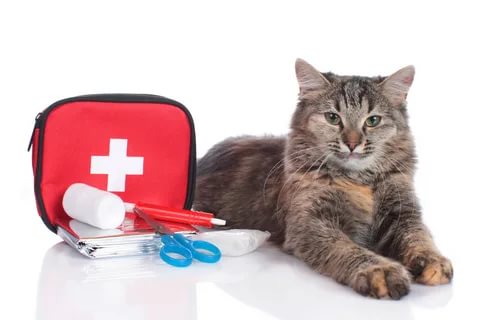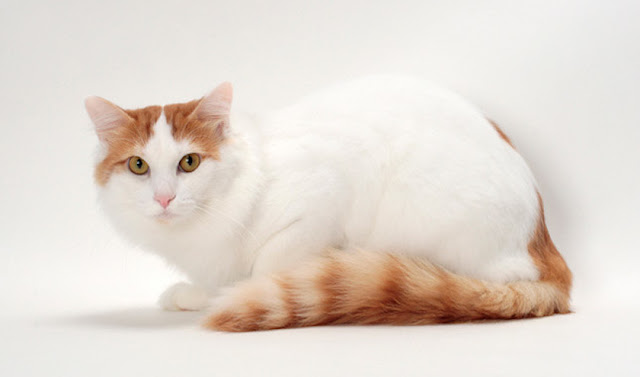There are a few conditions in senior felines that warrant brief consideration. Realizing how to recognize clinical signs right off the bat, will ideally prompt a snappy conclusion and quick treatment. A feline is viewed as a senior when they arrive at the age of seven. As of now, you can hope to see some physical and social changes happen. It isn't irregular for them to create vision and hearing misfortune, and perhaps some dementia. So it is suggested that your senior feline is seen by their veterinarian in any event double a year to ensure these progressions aren't influencing their general wellbeing.
Joint pain
Joint pain, otherwise called osteoarthritis, is a degenerative illness of the joints. In any event 90% of felines more than 12 years old have proof of degenerative joint infection on radiographs.1 Owners may not relate minor changes in their feline to joint pain, since they may not yet give indications of faltering. This condition ought to be at the first spot on the list particularly if your senior feline is overweight. Know whether they are experiencing issues prepping, bouncing onto furniture, getting to the litter box, and are more fractious than expected. Your veterinarian may prescribe some lab tests and radiographs to help analyze joint inflammation. Treatment alternatives incorporate agony the executives, medical procedure, exercise based recuperation, joint supplementation, cold and warmth treatment, muscle conditioning and fortifying, and needle therapy.
Dental Disease
Dental infection influences the greater part of the feline populace more than three years of age.2 Cats have a large number of similar dental issues as canines, including periodontal illness, cracked teeth, and oral developments. Felines are likewise tormented with tooth resorption (a tooth deformity where the root dissolves and vanishes when they are supplanted by bone) and aggravation. Focus when you notice a decline in craving, awful breath, and slobbering. On assessment, tartar develop and gum irritation might be noted. Dental radiographs might be expected to distinguish the degree of dental illness. Treatment alternatives incorporate an expert dental cleaning, extraction of ailing teeth, expulsion and additionally biopsy of oral developments, anti-infection agents, and agony the executives.
Kidney Failure
The kidneys serve numerous jobs, including water preservation, poison evacuation, calcium, phosphorus, pH, and electrolyte balance, circulatory strain guideline, and red platelet creation. A pet with disabled kidney capacity will struggle concentrating pee. It should drink additional water to deal with the body's waste synthetic substances.
At first, a proprietor may see their senior feline drinking somewhat more water than expected. As the sickness advances, the feline may have critical water admission and pee yield. Kidney disappointment is analyzed through lab testing. This condition is irreversible. Treatment is pointed toward hindering the disease.3 Treatment choices depend on the movement of the illness and may incorporate liquid treatment, diet treatment, and enhancements. In serious cases, a blood bonding might be required.
Diabetes Mellitus
Diabetes Mellitus is brought about by a lack of insulin in the body. Insulin is important to eliminate glucose (sugar) from the circulation system. At the point when it is low or missing, there is a development of glucose. Typically, the kidneys ration the circulatory system's glucose, however when they are overpowered the glucose spills into the pee in high sums. Glucose draws water with it and in the end prompts expanded thirst and pee.
Diabetes is like kidney disappointment in that clinical signs might be unpretentious before all else. Notwithstanding expanded water admission and pee yield, a senior feline may encounter expanded craving and weight loss.4 Diabetes Mellitus is analyzed through bloodwork and urinalysis (assessment of the pee). When analyzed, your veterinarian will talk about treatment alternatives which will incorporate insulin infusions. Additionally, remedy consumes less calories are accessible. It is workable for a feline to go into abatement. Thus, beginning treatment when the condition is analyzed is significant.
Hyperthyroidism
Hyperthyroidism happens when the thyroid organ secretes thyroid chemicals in abundance. This is the most widely recognized endocrine (organs that discharge chemicals) illness in felines, and influences late moderately aged and senior cats.5 Hyperthyroidism influences the whole body, so proprietors may not understand there is an issue until the sickness has advanced. Clinical signs shift, yet most proprietors report that their feline has a ravenous craving with no weight gain, or deficiency of weight. The finding depends on bloodwork that uncovers raised thyroid chemical levels. Other testing might be important to decide the seriousness of the sickness. Treatment choices incorporate enemy of thyroid medicine, hostile to thyroid eating regimen, radioiodine treatment, and now and again, medical procedure.






Post a Comment